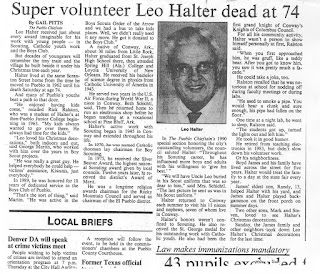The popular musical Hamilton tells the tale of the dynamic life of Alexander Hamilton with a hip-hop beat. Fittingly, it ends with Hamilton’s widow, Eliza who provides the audience with the lasting context of their lives, ending with the well-known song, “Who Lives, Who Dies, Who Tells Your Story.”
In the world today, while funerals are often a part of the telling of a person’s story, so is the old tradition of the obituary. Far from a new invention, people have been recording deaths since ancient times. In Rome, before the birth of Christ, daily records were collected in an ancient equivalent of a whiteboard called an “album.” This ancient version of Facebook provided the notice of births, marriages, and deaths. Fast forward to the 1600s and you will find a similar record of the life and death of aristocrats in the newsbooks of Great Britain, the precursors to modern newspapers. In the 1800s, the modern notion of obituaries made their way to the United States. When the telegraph was invented, we were able to share stories of distant deaths in local newspapers, increasing the obituary’s popularity.
 |
| Courtesy National Archives, photo no. 166691302 |
An interesting fact about obituaries is that they are often very reflective of the values of the time. In the early 1800s, people often wrote about the virtues of those who died. A man might be painted as “gallant” and a woman as “pious.” The Civil War interrupted that trend and in the years following, obituaries took more of a focus on a person’s work and wealth. Over time, that trend continued. But September 11, 2001, changed the face of obituaries yet again. Following the attack, the New York Times wrote more than 2,400 obituaries out of the 2,996 victims. They covered the life of the 50-year-old cab driver and the young restaurant worker. They covered the heroes at the Port Authority and the firefighters who climbed the towers to save others. They stressed the importance of every person, every life, and every story.
Today, it’s more important than ever to be able to connect with people and tell stories. Without funerals or in-person memorials, many family members and friends are unable to share their memories. Without the formality of a memorial, many people may even miss the fact that a friend, former co-worker, or neighbor has passed away. With COVID-19, an obituary can help you mourn and it also can warn by reminding people of the vulnerability of people of all ages.
Obituaries, at their core, are acts of storytelling. We learn about the person’s history. We are able to reflect and think about their life. They can describe the person’s personality, document their accomplishments, and share hobbies and favorite things. They can be funny or serious. They help us visualize and imagine the person during those special moments that the story shares. Obituaries:
- Tell the story. Most people aren’t Alexander Hamilton with autobiographies and musicals in their honor. But an obituary guarantees that their story is written and shared. It gives the appropriate love and respect for the person.
- Share the story. With an obituary, whether digital or in a printed newspaper, enable more people the ability to access the story and to spread the word about the life of the person. It is a chance for others to share in this profound moment.
- Embrace the story. Obituaries can help to acknowledge the loss and express your feelings, including the pain of loss or happiness in the memories. The story is a chance to celebrate the life and experience how your loved one impacted you and the world around them.
- Document the story. One of the best sources for genealogy research is an obituary. Documenting a person’s life and their history enables family research today, while helping those in the future connect with family who have passed.
Throughout the musical Hamilton, the main character was worried about being remembered, running out of time, and trying to create a legacy. The obituary is our way of leaving a fitting legacy, celebrating the life of our loved ones, and providing us with the answer to the question “who tells our story?”






